#Johann Wolfgang von Goethe (1749-1832)
Explore tagged Tumblr posts
Text
Frases Célebres
Frases Célebres Johann Wolfgang von Goethe (1749-1832) #aperturaintelectual #frasescelebresaintelectual
“Pensar es fácil, actuar es difícil, y poner los pensamientos de uno mismo en acción es lo más difícil del mundo”. Johann Wolfgang von Goethe (1749-1832) Abogado, bibliotecario, botánico, compositor, crítico de arte, diplomático, dramaturgo, escritor, estadista, filósofo, físico, libretista, novelista, pintor, poeta, polímata, político y zoólogo alemán. Sigue Apertura Intelectual en todas…
#AperturaIntelectual#frasescelebresaintelectual#Abogado. bibliotecario. botánico. compositor. crítico de arte. diplomático. dramaturgo. escritor. estadista. filósofo. físico. libretista. n#Actuar#Congruencia#Dificultad#Ejecución#Frases Célebres#Johann Wolfgang von Goethe (1749-1832)#Pensamientos#Poner en acción
0 notes
Text
Le roi des aulnes - Johann Wolfgang (von) Goethe ( 1749 -1832 )
Wer reitet so spät durch Nacht und Wind?Es ist der Vater mit seinem Kind.Er hat den Knaben wohl in dem Arm,Er fasst ihn sicher, er hält ihn warm.Mein Sohn, was birgst du so bang dein Gesicht? –Siehst Vater, du den Erlkönig nicht!Den Erlenkönig mit Kron’ und Schweif? –Mein Sohn, es ist ein Nebelstreif. –„Du liebes Kind, komm geh’ mit mir!Gar schöne Spiele, spiel ich mit dir,Manch bunte Blumen sind…

View On WordPress
0 notes
Text







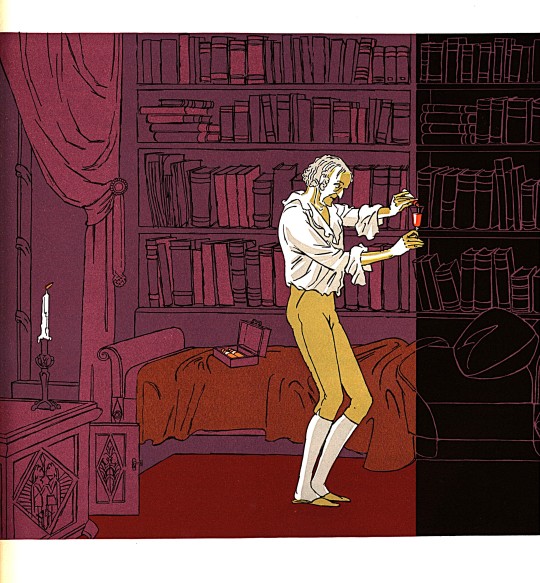

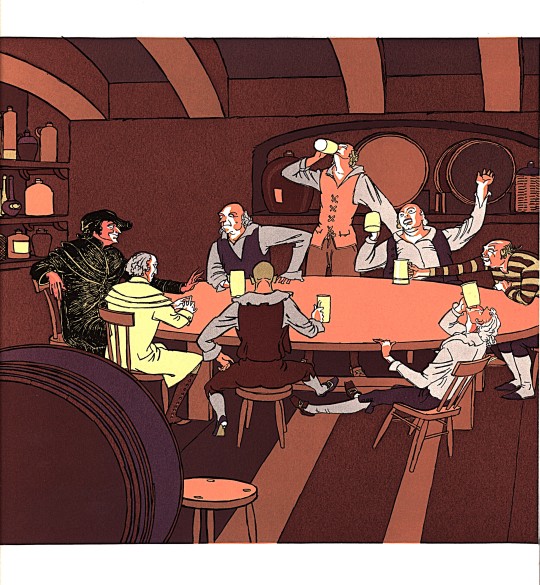




It's Fine Press Friday!
One of the early productions of the Limited Editions Club was Faust by Johann Wolfgang von Goethe (1749-1832), with reproduced watercolor illustrations by American artist and illustrator René Clarke (1886-1959) and a translation for this edition by Alice Raphael (1887-1975), printed in an edition of 1500 copies signed by the artist and issued on March 22, 1932 to mark the centenary of the author's death. The book was also designed by Clarke and printed in New York by the Bartlett-Aldus Press in W. A. Dwiggins' Metro type on a special rag paper imported from Italy, and bound in dark-red cloth stamped in gold with a pattern by Clarke.

View our other posts on Faust.
View other books published by the Limited Editions Club.
View other Fine Press Friday posts.
#Fine Press Friday#fine press fridays#Limited Editions Club#Faust#Goethe#Johann Wolfgang von Goethe#René Clarke#watercolors#Alice Raphael#Bartlett-Aldus Press#W. A. Dwiggins#Metro type#fine press books
206 notes
·
View notes
Note
Other ways for your character to say I love you?
“And the sunlight clasps the earth, And the moonbeams kiss the sea – What are all these kissings worth if thou kiss not me?” —Percy Bysshe Shelley, Love’s Philosophy
Be soft on someone - to love someone or like someone very much
“Be with me, darling, early and late.” —John Frederick Nims, Love Poem
Besotted - to be completely in love with someone and always thinking of them
Carry a torch for [someone] - to be in love with someone
“Clasp me close in your warm young arms, while the pale stars shine above, and we’ll live our whole young lives away in the joys of a living love.” —Ella Wheeler Wilcox, I Love You
“Come live with me, and be my love, and we will some new pleasures prove.” —John Donne, The Bait
Dote on someone - to love someone completely and believe they are perfect
“Drink to me only with thine eyes, And I will pledge with mine; Or leave a kiss but in the cup, And I’ll not look for wine.” —Ben Jonson, Song: To Celia
"For God's sake hold your tongue, and let me love [you]." —John Donne 1572–1631 English poet and divine: Songs and Sonnets ‘The Canonization’
Head over heels (in love) - completely in love
“I became fascinated by your goodness. I was drawn in by it. I didn’t understand what was happening to me. And it was only when I began to feel actual, physical pain every time you left the room that it finally dawned on me: I was in love, for the first time in my life. I knew it was hopeless, but that didn’t matter to me. And it’s not that I want to have you. All I want is to deserve you. Tell me what to do. Show me how to behave. I’ll do anything you say.” —Choderlos de Laclos, Dangerous Liaisons
“I cannot let you burn me up, nor can I resist you. No mere human can stand in a fire and not be consumed.” —A.S. Byatt, Possession
“I dreamed you bewitched me into bed and sung me moon-struck, kissed me quite insane.” —Sylvia Plath, Mad Girl’s Love Song
“I have spread my dreams under your feet; Tread softly because you tread on my dreams.” —W.B. Yeats, Aedh Wishes for the Cloths of Heaven
“I have to tell you, there are times when the sun strikes me like a gong, and I remember everything, even your ears.” —Dorothea Grossman, I Have to Tell You
“I have waited for this opportunity for more than half a century, to repeat to you once again my vow of eternal fidelity and everlasting love.” —Gabriel García Márquez, Love In The Time Of Cholera
“I love thee to the depth and breadth and height my soul can reach.” —Elizabeth Barrett Browning, How Do I Love Thee? Let Me Count the Ways…
“I would like to be the air that inhabits you for a moment only. I would like to be that unnoticed and that necessary.” ―Margaret Atwood, Variation on the Word Sleep
“I'll help you hide the body, always.” ―Me (L. V.)
“I’ve never had a moment’s doubt. I love you. I believe in you completely. You are my dearest one. My reason for life.” ―Ian McEwan, Atonement
“If certain, when this life was out, That yours and mine should be, I’d toss it yonder like a rind, And taste eternity.” ―Emily Dickinson, If You Were Coming in the Fall
"If I love you, what does that matter to you!" —Johann Wolfgang von Goethe 1749–1832 German poet, novelist, and dramatist: Wilhelm Meisters Lehrjahre (1795–6) bk. 4, ch. 9
"Immature love says: ‘I love you because I need you.’ Mature love says: ‘I need you because I love you.’" —Erich Fromm 1900–80 American philosopher and psychologist: The Art of Loving (1956)
“In vain I have struggled. It will not do. My feelings will not be repressed. You must allow me to tell you how ardently I admire and love you.” —Jane Austen, Pride And Prejudice
Infatuated with someone - having a very strong but not usually lasting feeling of love or attraction for someone
“It well may be that in a difficult hour, Pinned down by pain and moaning for release, Or nagged by want past resolution’s power, I might be driven to sell your love for peace, Or trade the memory of this night for food. It well may be. I do not think I would.” —Edna St. Vincent Millay, Love Is Not All
Live for someone - to have someone as the most important thing in your life
Lose your heart to someone - to fall in love with someone
Love me, love my dog - said to warn someone that if they want to be in a relationship with you, they must be willing to accept everything about you
Love someone to the moon and back - to love someone very much, usually used to tell someone how much you love them
“Oh plunge me deep in love – put out my senses, leave me deaf and blind, swept by the tempest of your love, a taper in a rushing wind.” —Sara Teasdale, I Am Not Yours
Steal someone's heart - if someone steals your heart, you start to love or like them very much
Sweep someone off their feet - to make someone become suddenly and completely in love with you
The apple of someone's eye - the person who someone loves most and is very proud of
The light of your life - the person you love most
“This poem is endless, the odds against us are endless, our chances of being alive together statistically nonexistent; still we have made it.” —Lisel Mueller, Alive Together
“Trees and seas have flown away, I call it loving you.” —Reginald Shepherd, You, Therefore
Worship the ground someone walks on - to love and admire someone very much
“You are my heart, my life, my one and only thought.” —Arthur Conan Doyle, The White Company
“You are whatever a moon has always meant and whatever a sun will always sing.” —E.E. Cummings, I Carry Your Heart With Me
Sources: 1 2 3
#anonymous#writeblr#dark academia#spilled ink#love#literature#quotes#poetry#writing prompt#poets on tumblr#writers on tumblr#words#lit#linguistics#studyblr#langblr#light academia#creative writing#writing reference#character development#dialogue#writing resources
231 notes
·
View notes
Text
"Correction does much, but encouragement does more."
-Johann Wolfgang von Goethe (German poet and playwright, 1749-1832)
#quote#quotes#quoteoftheday#goethe#german#germany#europe#europeans#18th century#1700s#educational#empathy#relationships#teaching#education
155 notes
·
View notes
Text
Es irrt der Mensch solang er strebt.
Man errs as long as he strives.
Johann Wolfgang von Goethe (1749 – 1832), German poet, politician, and naturalist
22 notes
·
View notes
Text

Johann Wolfgang von Goethe, August 28, 1749 – March 22, 1832.
41 notes
·
View notes
Text

Johann Wolfgang von Goethe.
(28 August 1749 – 22 March 1832) was a German polymath and writer, who is widely regarded as the greatest and most influential writer in the German language. His work has had a profound and wide-ranging influence on Western literacy, political, and philosophical thought from the late 18th century to the present day. Goethe was a German poet, playwright, novelist, scientist, statesman, theatre director, and critic. His words include plays, poetry and aesthetic criticism, as well as treaties on botany, anatomy and color.
#goethe#germany#German#poet#poetry#light academia#light academia aesthetics#philosophy#dark academia#dark academia aesthetic#words#critics#criticism#book#booklr#influential writer#writer#waiting#writers#german poet#playwright#novelist#theater#critic#plays#German literature#classic#classic poem#bookshelves#bookstores
10 notes
·
View notes
Text
"A man who cannot command himself will always be a slave."
Johann Wolfgang von Goethe (1749-1832) German poet and playwright.
58 notes
·
View notes
Text
Prometheus and its Ancient Origins
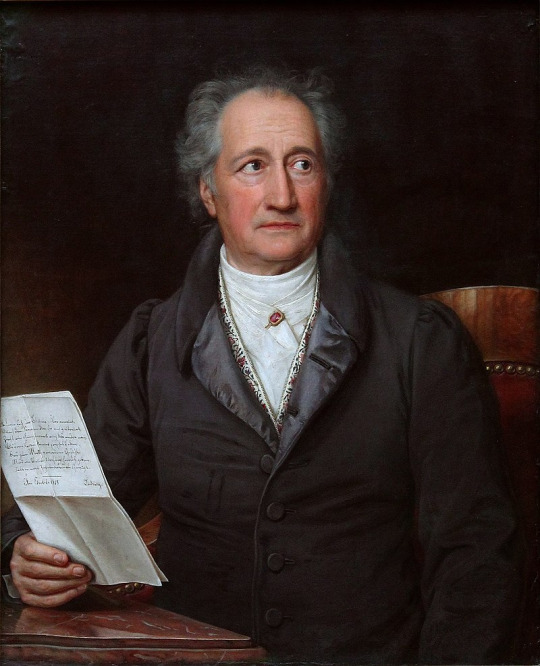
By Joseph Karl Stieler - Transferred from nds.wikipedia to Commons..org by G.Meiners at 12:05, 15. Okt 2005., Public Domain, https://commons.wikimedia.org/w/index.php?curid=375657
Johann Wolfgang von Goethe, widely known as just Goethe, was a German polymath (someone with a vast number of specialties) who lived from 1749-1832. He was born in Frankfurt at a time that it was part of the Holy Roman Empire and died in Weimar when it was part of Saxe-Weimar-Eisenach. He also had Turkish ancestry through his Maternal grandmother. He was tutored by his father, who had studied law, and others in Latin, Greek, French, and Italian along with physical skills such as dancing, riding, and fencing, which was fairly typical of the time. He was particularly fond of the writings of Homer as well as drawing and theater. When he went to Leipzig University starting when he was 16, he studied law. He found learning ancient laws by heart detestable and went to lectures by Christian Fürchtegott Gellert, a poet, instead. He met Anna Katharina Schönkopf and between his love for her and admiration for Gellert, he wrote his first book of poetry and his and his first comedy, though he also discarded a lot of his writings from this time as well.
Because he was doing poorly in his main studies, Goethe was forced to return home when he was 19. He also became very ill for about a year and a half. During this time, his relationship with his father also suffered. After that time, he left to finish school at the University of Strasbourg. There, his health improved. He met Johann Gottfried Herder, who exposed Goethe to William Shakespeare's works, Ossian, the narrator in James Macpherson's poems, and Volkspoesie (folk poetry). He credits the introduction of Shakespeare's work with his love of literature. He graduated with a Licentate in Law when he was 22 and set up a practice in Frankfurt. He wanted to make the practice of law more humane, but his youth caused him to reach too far, bringing censure and loss of clients. He moved to the court of Darmstadt that worked better with his temperament. He also was able to pursue literature with his father's blessings.
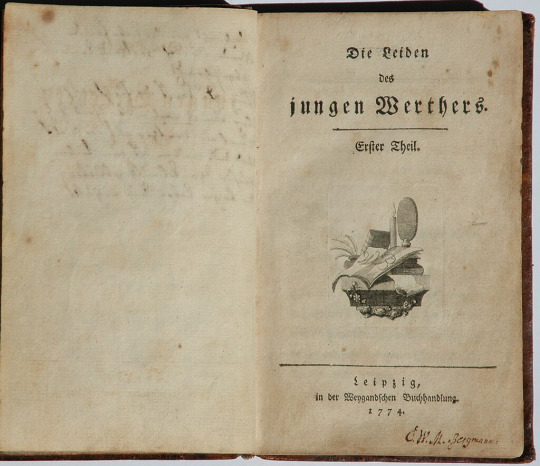
By © Foto H.-P.Haack (H.-P.Haack) - Sammlung Dr. Haack → Antiquariat Dr. Haack Leipzig → Privatbesitz, CC BY 3.0, https://commons.wikimedia.org/w/index.php?curid=2140496
He wrote The Sorrows of Young Werther, his breakout novel, when he was 23 and it was semi-biographical. Though it was very successful, he didn't earn much from it because copyright laws at the time didn't really protect writers. Later in his life, though, when there were better protections, he would release 'new, revised' editions of his works.
When he was 26, he was invited to court by Karl August, the Duke of Saxe-Weimar-Eisenach and later Grand Duke. He held many offices in the court including chief advisor and superintendent of the duke's library over the course of the rest of his life. He was also friends and a confidant with the Duke and was more involved in the court than
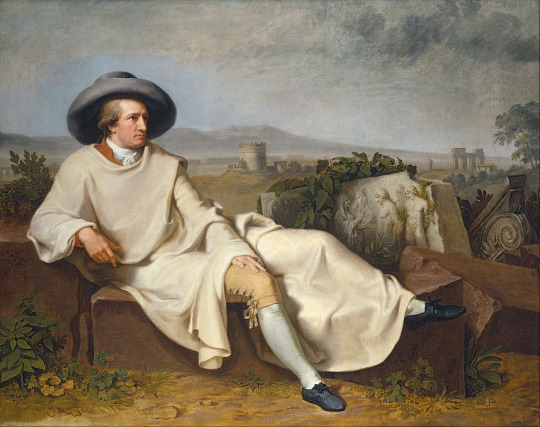
By Johann Heinrich Wilhelm Tischbein - aAH2PRcepgpGwA at Google Cultural Institute, zoom level maximum, Public Domain, https://commons.wikimedia.org/w/index.php?curid=29098753
At 37, Goethe was sent on a journey to Italy and Sicily for two years, inspired by his father. It was almost like a pilgrimage for him, to visit the classical world, and renewed his love of the art of ancient Rome and Greece. He said of Sicily '[t]o have seen Italy without having seen Sicily is to not have seen Italy at all, for Sicily is the clue to everything.' He was struck by the simplicity of ancient Greek architecture as compared to ancient Roman. While he documented much of his first year, there wasn't a lot of documentation of his second year.
Four years after his return, he followed the Duke to the Battle of Valmy during a failed invasion of France, and later at the Siege of Mainz, he was an observer. When he was 57, Napoleon invaded Weimar. Goethe was living with his mistress, Chritiane Vulpus, who was instrumental in protecting his house from the 'spoon guards', those who were the least disciplined. While Goethe froze up, Christiane barricaded the kitchen and cellar and organized the defense of the house. Goethe later wrote '[f]ires, rapine, a frightful night… Preservation of the house through steadfastness and luck.' Rüdiger Safranski wrote 'The luck was Goethe's, the steadfastness was displayed by Christiane'. Shortly thereafter, Goethe married her after having been together for 18 years and having several children together. She died twelve years later.
When he was 72, after a near-fatal illness, he fell in love with a 17 year old Ulrike von Levetzow, but was prevented from proposing by her mother's disapproval. He also had a 'deep emotional bond' with 33 year old Maria Szymanowska, a Polish pianist, who left her husband. He died of heart failure when he was 82 years old.

By No machine-readable author provided. Atoma assumed (based on copyright claims). - No machine-readable source provided. Own work assumed (based on copyright claims)., Public Domain, https://commons.wikimedia.org/w/index.php?curid=1520906
Prometheus in Greek mythology was one of the Titans, his name possibly meaning 'forward thinking' or 'forethought'. His best known myth has him defying the Olympians to bring fire to humanity, the fire leading to technology, which allowed the transmission of knowledge to be more rapid and far reaching, and then civilization. Some of the myths also having him creating humans and also fathering the hero of the flood story. The Olympians, lead by Zeus, set down a sentence of being bound to a rock on either Mount Elbrus or Mount, which are both volcanoes that separate Greece from the 'barbari' in the Caucaus Mountains, and having his liver, the seat of emotions, eaten by an eagle, the creature that represented Zeus, every day. Every night, Prometheus' liver would grow back. He remains there until he is freed by Heracles.

By Heinrich Füger - Public Domain, https://commons.wikimedia.org/w/index.php?curid=175869
Prometheus was written around 1773 and published in 1789, though an unauthorized version published by Friedrich Heinrich Jacobi in 1785. It is written in a German proto-Romantic style called Sturm und Drang (storm and stress), in which extremes of emotions are allowed to breathe and given free range as opposed to the rationality demanded by the Enlightenment. It was initially going to be a play, but was changed into a poem. Prometheus is shown to be creative and rebellious, defying god, and asserting himself against god, and eventually rejecting a belief in god, citing '[w]ho helped me/Against the Titan' insolence?/Who rescued me from certain death,/From slavery?/Didst though not do all this thyself'. He further rails against god by saying '[h]ast though e'er dried up the tears/Of the anguish stricken?…Didst thou e'er fancy/That life I should learn to hate,/And ffly to deserts,/Because not all/My blossoming dreams grew ripe?' He then proclaims that he is creating humans to have the full range of emotional experiences that he has had. This poem is paired with Goethe's poem entitled Ganymed, which expresses the opposite sentiment. Both have been set to or interpreted in music multiple times.
You can read Prometheus here. You can read Ganymed here.
2 notes
·
View notes
Text

Today on 1832, Johann Wolfgang von Goethe has died.
Born in 1749 in Frankfurt am Main, Goethe's work spanned poetry, drama, literature, theology, humanism and science, demonstrating a versatility unparalleled among his contemporaries.
Goethe's early works, such as The Sorrows of Young Werther, brought him fame, reflecting the essence of the Sturm und Drang movement, which exalted individual emotion and natural energy over the rationalism of the Enlightenment. This novel in particular caused widespread resonance, influencing the Romantic movement and cementing Goethe's place in literary history.
Goethe continued to work prolifically throughout his career, but it was Faust, a dramatic work in two parts, that cemented his legacy. In Faust, Goethe explores human aspirations and the complexities of human existence, combining classical motifs with the spirit of the Romantic era.
This masterpiece, which occupied Goethe throughout his life, remains an essential work illustrating his intellectual depth and creative genius.
3 notes
·
View notes
Text

“One ought, every day at least, to hear a little song, read a good poem, see a fine picture, and, if it were possible, to speak a few reasonable words.” —Johann Wolfgang von Goethe (1749-1832)
Artist Maria Pavlova
3 notes
·
View notes
Text


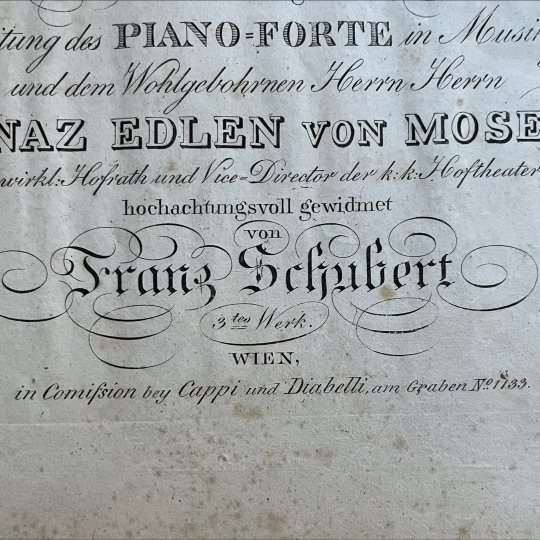
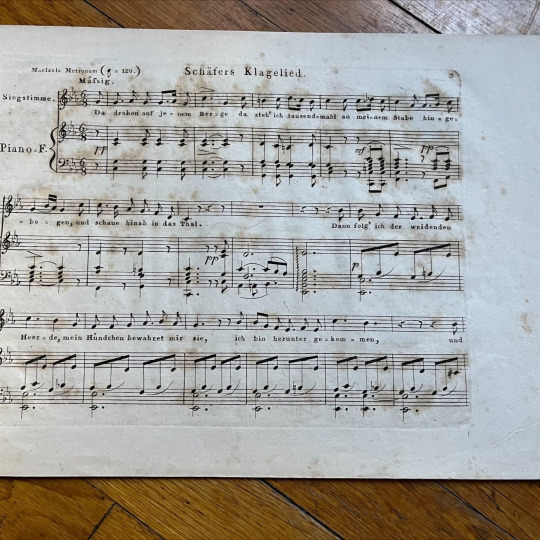
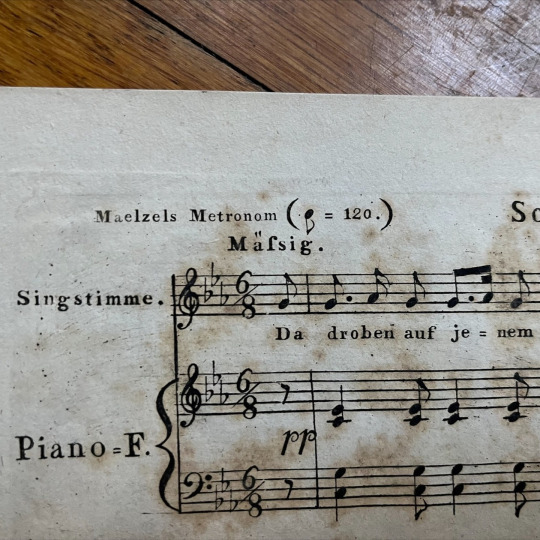

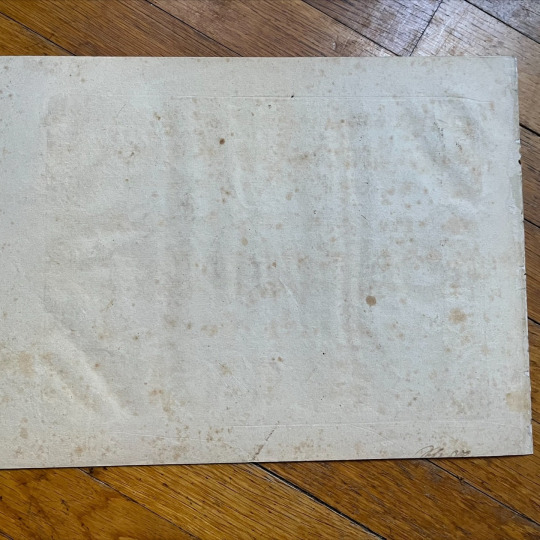
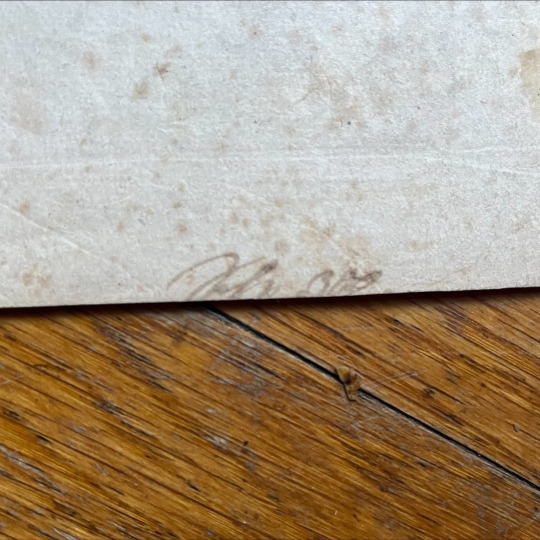
OTD in Music History: Ostensibly to commemorate the first anniversary of Ludwig van Beethoven’s (1770 – 1827) death, Beethoven's worshipful younger colleague Franz Schubert (1797 – 1828) puts on the only public concert that Schubert would ever give featuring his own original works in 1828. This historically important concert was both a critical and financial success… but unfortunately, it was also quickly overshadowed by Niccolo Paganini’s (1782 – 1840) first triumphant appearances in Vienna. Schubert died of typhoid fever just eight months later, at the age of 31. Notwithstanding his tragically early death, in some ways, Schubert was actually a rather *late* developer as a composer – it was only in the final year and a half of his life (perhaps not coincidentally following the death of his idol Beethoven) that he truly came into full flowering as a composer of instrumental music written in larger forms. Speaking of Schubert's unparalleled artistic growth during that period, 20th Century British composer Benjamin Britten (1913 - 1976) marveled at what he dubbed “the most miraculous 18 months in musical history…” PICTURED: An 1821 printed first edition sheet containing three of Schubert's earliest published songs -- "Schafer’s Kalgelid" ("Shepherd’s Lament"), “Heidenroslen” (“Little Rose of the Field,”) and “Jager’s Abendlied” (“Hunter’s Evening Song”) -- all featuring texts written by the great German poet Johann Wolfgang von Goethe (1749 – 1832). In his earliest printed publications, Schubert confirmed their authenticity by appending his "control mark" on the back of the folio, as can be seen here (albeit in a slightly trimmed fashion) in the final two photos. Of additional note is the fact that this score contains an early and interesting metronome marking (see Photo #4): "Maelzel's Metronom ([eighth note symbol] = 120.)" As this rather unusual terminology suggests, in 1821, the metronome was still a new and novel device; Johann Maelzel (1772 - 1838) -- a good friend of Beethoven's -- had only patented the first modern metronome 5 years earlier, in 1816.
#Ludwig van Beethoven#Beethoven#composer#pianist#piano#music#Classical period#Romantic era#opera#bel canto#classical music#music history#aria#diva#prima donna#chest voice#Franz Schubert#Schubert
18 notes
·
View notes
Text
Dezember N°3
Eingefroren sahen wir so Jahrhunderte starren,Menschengefühl und Vernunft schlich nurverborgen am Grund.aus Winter von Johann Wolfgang Goethe, ab 1782 von Goethe (* 28. August 1749 in Frankfurt am Main; † 22. März 1832 in Weimar, Großherzogtum Sachsen-Weimar-Eisenach), war ein deutscher Dichter, Politiker und Naturforscher. Er gilt als einer der bedeutendsten Schöpfer…
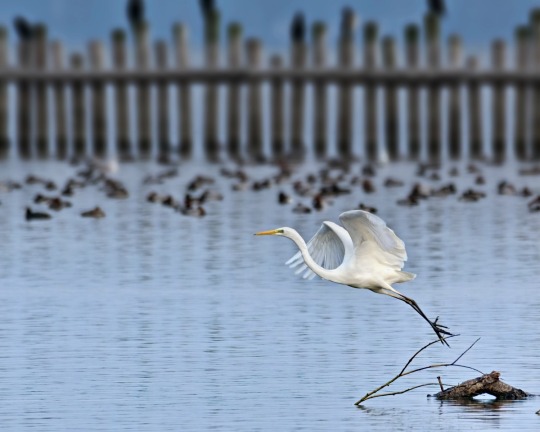
View On WordPress
#vernunft#austria#Bodensee#eingefroren#goethe#lake Constance#Naturschutz#photo#Photography#starren#winter
2 notes
·
View notes
Text
"The world is so empty if one thinks only of mountains, rivers and cities; but to know someone here and there who thinks and feels with us, and though distant, is close to us in spirit — this makes the earth for us an inhabited garden."
-Johann Wolfgang von Goethe (German poet and playwright, 1749-1832)
7 notes
·
View notes
Text
Es ist ein einförmiges Ding um das Menschengeschlecht. Die meisten verarbeiten den größten Teil der Zeit, um zu leben, und das bißchen, das ihnen von Freiheit übrig bleibt, ängstigt sie so, daß sie alle Mittel aufsuchen, um es loszuwerden.
It is always the same with the human race. Most work most of the time to live, and what little freedom they have left so frightens them that they seek any means of getting rid of it.
Johann Wolfgang von Goethe (1749 – 1832), German poet
38 notes
·
View notes